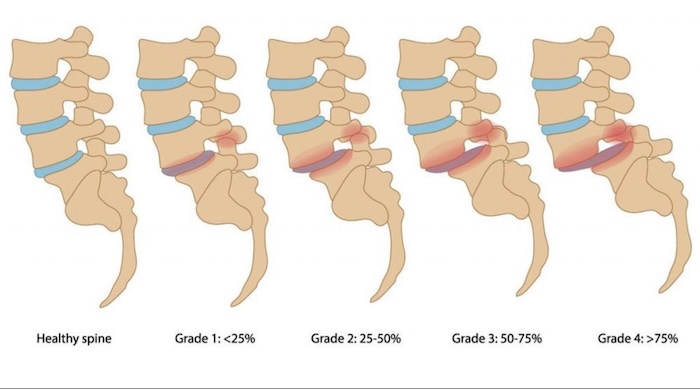
Spondylolisthesis is a spinal condition that can cause significant discomfort and pain, affecting an individual's daily life. Precision Pain Care and Rehabilitation aims to help patients understand their condition and explore effective treatment options to improve their quality of life. Interventional pain management offers targeted and minimally invasive techniques that can bring relief to those suffering from spondylolisthesis.
What is Spondylolisthesis?
Spondylolisthesis occurs when one of the vertebrae in the spine slips out of place onto the vertebra below it. This misalignment can cause pain, especially in the lower back, as well as nerve compression, leading to discomfort in other areas such as the legs. The condition often results from degenerative changes in the spine due to aging, trauma, or congenital spinal defects.
Symptoms of Spondylolisthesis
Patients with spondylolisthesis may experience a variety of symptoms, including:
- Lower back pain
- Stiffness in the spine
- Difficulty standing or walking for prolonged periods
- Radiating pain or numbness in the legs due to nerve compression (sciatica)
- Muscle weakness
The severity of symptoms varies depending on the degree of vertebral slippage, which is typically classified into grades ranging from mild (Grade 1) to severe (Grade 4).
Diagnosing Spondylolisthesis
A diagnosis of spondylolisthesis is made through a physical examination and imaging studies such as X-rays, MRI, or CT scans. These tests help confirm the degree of vertebral slippage and identify any associated nerve compression.
Interventional Pain Management for Spondylolisthesis
Interventional pain management focuses on treating the pain associated with spondylolisthesis through minimally invasive procedures. These techniques can provide relief by reducing inflammation, improving mobility, and addressing nerve pain. Some common interventional pain management options include:
- Epidural Steroid Injections
These injections deliver anti-inflammatory medications directly to the affected area, reducing swelling around the compressed nerves and alleviating pain. Epidural injections are often used when conservative treatments like physical therapy and medications have not provided sufficient relief.
- Facet Joint Injections
If the pain originates from the joints connecting the vertebrae (facet joints), injections into these joints can help decrease inflammation and provide targeted pain relief.
- Radiofrequency Ablation (RFA)
For patients with chronic back pain due to nerve irritation, radiofrequency ablation can be an effective treatment. This procedure uses heat to disrupt nerve signals, reducing pain for an extended period.
- Spinal Cord Stimulation (SCS)
In more advanced cases, spinal cord stimulation may be recommended. SCS involves implanting a device that sends electrical signals to the spinal cord, masking pain signals before they reach the brain. It is often used in patients with persistent, debilitating pain who have not found relief with other treatments.
Benefits of Interventional Pain Management
Interventional pain management offers several advantages for patients with spondylolisthesis:
- Minimally Invasive: Procedures are performed using small incisions or injections, minimizing trauma to the surrounding tissues.
- Targeted Relief: Treatments focus on the specific source of pain, providing more precise relief compared to generalized therapies like oral medications.
- Quick Recovery: Most procedures are outpatient-based, meaning patients can return home the same day and experience faster recovery times.
- Reduction in Medication Dependence: Many patients can reduce or eliminate their reliance on oral pain medications, which can carry risks of side effects and dependency.
Personalized Care at Precision Pain Care and Rehabilitation
Every patient’s experience with spondylolisthesis is unique, and treatment plans should be tailored to individual needs. At Precision Pain Care and Rehabilitation, a comprehensive evaluation is conducted to determine the best course of action for each patient. The combination of advanced diagnostic tools and cutting-edge interventional techniques allows for a customized approach that targets the root cause of pain and provides long-term relief.
Data and Outcomes
Interventional pain management has shown promising outcomes in reducing pain and improving function in patients with spondylolisthesis. According to recent studies, epidural steroid injections and facet joint injections provide significant pain relief in over 50% of patients. In cases where radiofrequency ablation is used, patients report longer-lasting pain reduction, often for six months or more. Spinal cord stimulation has also been effective in patients with severe, chronic pain, offering up to a 70% improvement in pain levels.
Conclusion
Spondylolisthesis can be a debilitating condition, but with the right approach, relief is possible. Interventional pain management offers an array of treatment options that can effectively reduce pain and improve mobility, allowing patients to return to their daily activities with less discomfort. At Precision Pain Care and Rehabilitation, the focus is on personalized, minimally invasive care that targets the source of pain and promotes long-term recovery. If you or someone you know is dealing with spondylolisthesis, it’s worth exploring how interventional pain management can make a positive difference.
Precision Pain Care and Rehabilitation has two convenient locations in Richmond Hill – Queens, and New Hyde Park – Long Island. Call the Queens office at (718) 215-1888 or (516) 419-4480 for the Long Island office to arrange an appointment with our Interventional Pain Management Specialists, Dr. Jeffrey Chacko or Dr. Sonny Ahluwalia.















